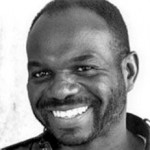 |
| Kristopher Sharp |
An undergraduate student at the University of Houston Downtown, the 24-year-old and his running mate for president, Isaac Valdez, were catapulted into the media after being targeted in homophobic attacks during their campaign. Sharp shares his thoughts on the incident, his feelings toward the person responsible, and his plans to continue work aimed at reducing HIV stigma.
How did you feel when you first learned that you had won the election?
I was elated. I had prepared myself for not winning, but we won. The first thing that went through my mind was how much I needed to thank all of my fellow students. They really rallied in support of us, and it was because of them that we won.
What were your feelings surrounding the fliers?
I was very devastated. I don’t think that it is something that anyone wants to have done to them. The first thing that was going through my mind was seeing how could I transfer to another university. How fast can I get out of here and still get away with salvaging what is left of the semester.
Had you been open about your HIV-positive status before this incident? Do you think that someone was trying to expose you?
Yes, I was open about it, but I was not as open as I have to be now. I just got diagnosed in 2010, so I was still coming to terms with everything myself.
I had spoken about it in certain circles where I feel comfortable, for instance in our LGBT group on campus. I had a couple of events that were geared toward [HIV] testing. They would ask questions, and I would make myself open to answer them.
I’ve been trying to become comfortable with being very open about my status. As a social work student, I understand that a very big part of breaking down stigma is personalizing the disease for people.
How did your running mate react to the fliers?
My running mate has been awesome. I don’t even know how else to describe it. This has been a very difficult thing for him, too. He is now associated with all of these things that he is not at all. He is not gay. He is not HIV positive.
But never once did he tell me, “Kristopher this is becoming too much for me.” He actually encouraged me and was the main reason why I decided that I needed to stay in the race.
How about your peers? How did they respond to the fliers?
My friends were very distraught. My peers had a mixed response. Some of the responses at the university solidify the reasoning of why we need to talk about this more. I would see postings and comments. They would be from people who self-identified as being students at the university.
Somebody wrote, “What does it matter if he is HIV positive. What does that have to do with the work he would do in the position?” And someone commented, “Because everyone knows that everyone with AIDS can spread it rapidly.” It was something really stupid and hurtful. I was expecting everyone to be appalled, and I think most people were. But I definitely wasn’t expecting for there to be some people who thought that this was OK.
Have they discovered who created the fliers?
I can’t really comment on the investigation because of the nature of how everything progressed. I got a lot of grief initially from a lot of people because I decided, some time after everything that had happened, that I did not want to pursue charges.
This person would probably be ostracized for the rest of their lives. I am not saying that what he or she did wasn’t wrong because it was wrong. But it would be wrong for me to turn around and purposefully ostracize someone given that I understand that he or she was acting off ideas that were much bigger than him or her.
I know it was someone I knew. Even though it might sound trivial, student government politics can get very heated. It was someone who I was a close friend with and who I had spoken with about many things. That really factored into the reason why I did not want to press charges.
If we should be trying to work toward anything because of this, it should be stopping stigma because that is the big issue here.
Were there other instances of discriminatory action against you at the university?
Yes. I’ve been called a faggot and stuff at the university. There continue to be certain places in the university that LGBT youth try to avoid simply because they know that this is a place where they can potentially be called some names.
I don’t believe that the university is purposefully allowing these things to happen. I do think that they have certain policies that create and reinforce the idea that it is acceptable when it’s not OK for these things to happen.
How would you like the university to address acts of discrimination?
They need to look at their policies and try to put themselves in our shoes. [Students] are not going to feel safe again if the individuals who do these things continue to get away with it. I met with the president and gave him a list of recommendations.
The first addressed policies, and the second was to implement an LGBT resource center on our campus that would educate young people about what it is like to be gay or transgender or have HIV, so that we don’t continue to have these stigmas circulating in the university. And three, I asked him to get on board with Isaac and me to bring the Live Consortium, an organization that provides HIV and anti-stigma education, to our university.
I recorded it and shared it on my Facebook. I wanted to make sure that he was held accountable. He agreed to look into these things. It’s been some time; this happened in March. I am given to understand that we have the resource center, which is great. I have been in talks to bring Live Consortium to campus. The policy has got to be changed. I haven’t heard any follow-up. But I am not going to allow it not to be changed. I don’t care if I have to sit and sleep in their office.
A big part of our platform is diversity affirmation. The university markets itself as one of the most diverse campuses in the nation. Well, you can’t be diverse unless you are also accepting of sexual minorities.
We have a high Latino population on our campus. And that’s great. But diversity includes many things: race, gender and class. It is a part of our platform, but we didn’t get serious about it until we saw the need for it.
What would you want to tell your campaign opponents?
I would say that they taught me a lot. This incident specifically taught me that being a member of the LGBT and the HIV-positive community, when one of our own is attacked, we don’t stand by idly. We rally together, and we fight back.
I would caution that individual on trying to take any type of adverse action against someone else like me, a gay person, an HIV-positive person, because it essentially won’t work.
What are your plans after graduation?
I plan on going to law school. I am planning on getting a master’s in social work coupled with a law degree. I really want to go into politics to see about trying to change things and work for the better of not just the gay community or the HIV community, but all communities that are traditionally disenfranchised.






3 Comments
3 Comments